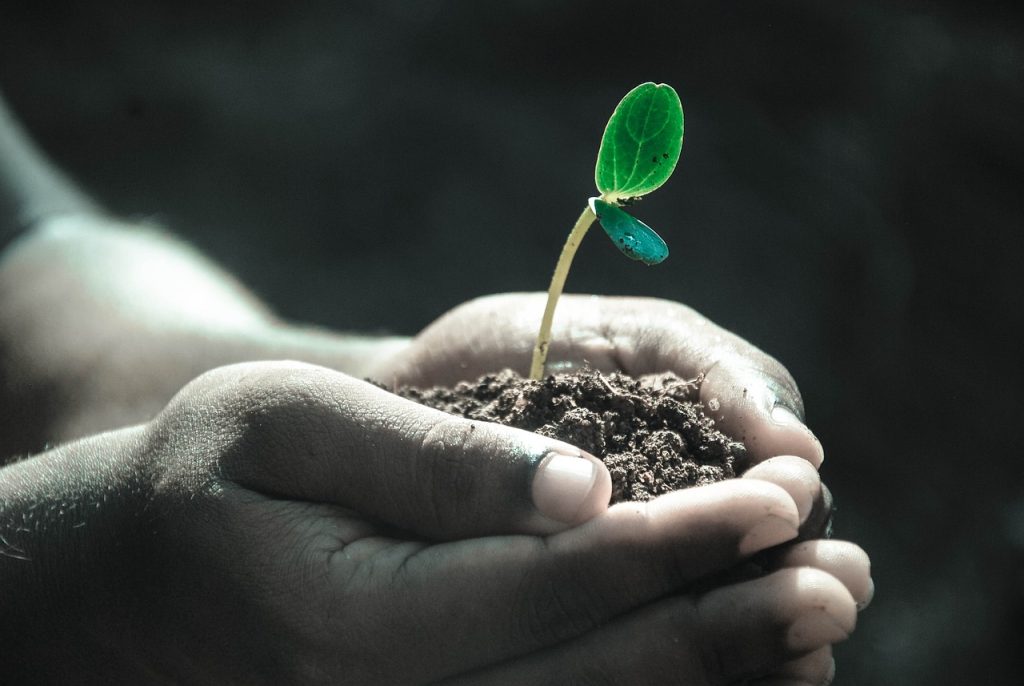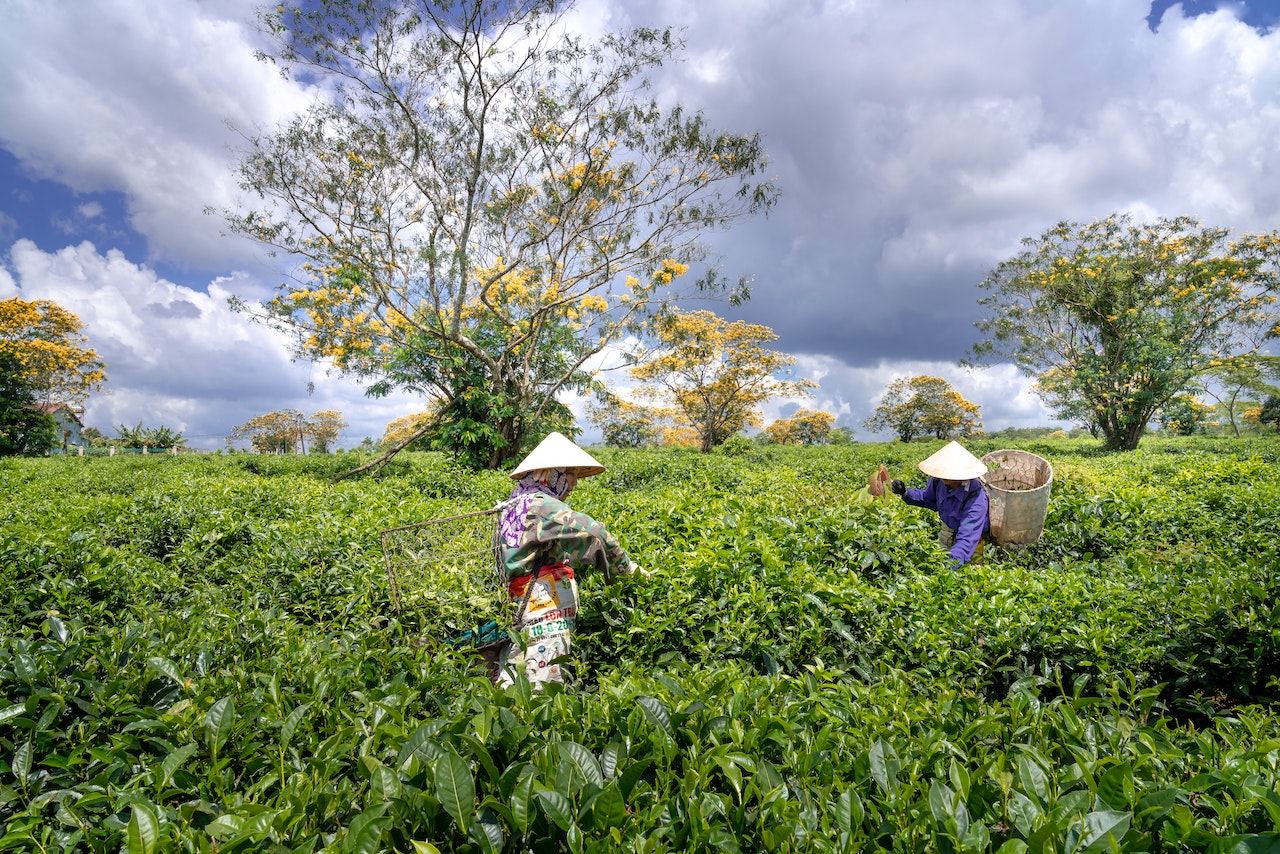Food security is a global issue and one that is becoming of greater concern as our climate changes. As a result of their often-remote locations and other unique challenges, a particular concern for islands is ensuring a sustainable and self-sufficient food system. St. Helena, a remote island in the middle of the Atlantic Ocean (and like many islands), faces significant hurdles in achieving food security.
I am a born and raised resident of St. Helena and have been fascinated with growing food since I was a young boy. This article explores the importance of food security on islands, focusing on St. Helena as a case study and provides details on what I am trying to do to improve this situation. It will delve into the island’s geographical constraints, the impact of food imports, and the initiatives undertaken to enhance local food production and foster resilience.
A Brief History and Overview of Food Production on St. Helena
Food security is vital for islands due to their inherent vulnerability stemming from limited land, resources, susceptibility to climate change and isolation from mainland supply chains. On St. Helena, the rugged terrain, increasing lack of good quality arable land, and geographic remoteness exacerbate the challenges in securing a reliable food supply. Ironically, the island was once (historically) a stopover where hundreds of sailing ships would resupply with fresh water and food every year. The roles of the island and ships have now reversed, and the island is heavily reliant on imports, leaving it vulnerable to disruptions in transportation and global market fluctuations.
St. Helena’s reliance on imports has led to high food prices, limited dietary diversity, and a lack of local food production capacity. This dependence not only hampers the island’s economic growth but also has impacts on health and well-being and leaves it vulnerable to external shocks and global market fluctuations.
Challenges St Helena faces
Invasive species: impacts and risks
You must ask, how can that be? How can an island of around 4500 people not sustain itself?
St. Helena faces several unique challenges in achieving food security. Historic deforestation of the island’s forests caused the rich volcanic soil to be exposed to the elements; wind and water simply swept vast amounts of the island’s soil away into the ocean, with reports that it turned the ocean black. Over the years, countless exotic species have been introduced to St Helena, many of them intentionally and many by accident. The introduction of invasive species, including rodents, pheasants, insects, and diseases, caused havoc on the island’s agriculture system. They attacked crops and caused the death of thousands of fruit trees that once covered the island. These invasive species continue to make farming more difficult and costly today. For these reasons, the island must still import fresh food to supplement the small-scale agriculture industry.
Supply chain disruptions
However, our remote location increases the cost and complexity of importing food, leaving it highly susceptible to supply chain disruptions; it is not unusual for St Helena to run out of potatoes, broccoli, and other vegetables that one would always expect to have in a supermarket in the UK. In an unpredictable future of climate change, this could present a massive problem for islands.
Climate change impacts
In modern times, a combination of dramatic climate events, small market size and unsustainable agricultural practices have been making agriculture more and more difficult every year.
Unsustainable methods
Unsustainable methods such as excessive tilling, indiscriminate use of fertilisers, and reliance on pesticides have detrimental effects on soil health, biodiversity, and the long-term sustainability of food production systems.
But it is easy to understand why the farmers do not want to change their methods, as current methods allow them to kill off pests and add nutrients to the soil which provides a yield enough to make a living, despite it killing the complex soil biology needed for long term soil health – to put it simply cannot carry on like this and anything that cannot carry on forever is by definition unsustainable.
The Importance of Soils and Soil biodiversity
I have been fascinated by how the significance of soil biodiversity and health to food production is being uncovered year by year.
Soil biodiversity plays a crucial role in the successful growth of food crops and the overall health of our ecosystems. Beneath the surface lies a complex network of organisms, including bacteria, fungi, insects, worms, and other microorganisms, all working harmoniously to create a vibrant and fertile soil ecosystem. These organisms contribute to nutrient cycling, soil structure formation, water retention, and disease suppression, essential factors for sustainable food production. They help break down organic matter, releasing vital nutrients that plants require for growth.

Moreover, soil biodiversity enhances soil resilience, reducing the need for synthetic fertilisers and pesticides, and promoting the long-term sustainability of agricultural systems. By nurturing and protecting soil biodiversity through practices such as crop rotation, using organic fertilisers, and minimal tillage, we can harness the power of this invisible ecosystem, fostering healthy soils that provide us with nutritious, abundant, and environmentally friendly food.
However, rebuilding the soil requires patience, dedicated resources, and a long-term commitment. It involves educating and changing people’s understanding of agriculture, allowing the restoration of vital nutrients, fostering soil biodiversity, and implementing sustainable practices to create a fertile foundation for healthy plant growth and resilient food production.
Looking to the Future
New methods: Precision Agriculture
As the world progresses, technology also presents an opportunity on remote islands. Precision agriculture has become a hot topic in recent years and is becoming ever more popular, allowing agriculture to reduce its inputs, thus increasing efficiency, and significantly reducing wastage.
Turning ideas into action
Recognizing the urgency of addressing food security on my home island, I have decided to undertake a crowdfunding campaign to enhance local food production and resilience.
Food Security for St Helena: https://www.crowdfunder.co.uk/p/iconic-st-helena
An Overview of the Crowdfunding Campaign
Addressing food security challenges on islands requires a holistic approach that encompasses community involvement, innovative farming techniques, and supportive policies. By prioritising local food production, St. Helena can strengthen its self-sufficiency, promote economic growth, and preserve its unique cultural heritage.
By utilising the durability and flexibility of aeroponic towers on a small scale, I hope to create a model that could be recognised and replicated on other islands, thus helping their food security situations. As global conversations around sustainable food systems continue to gain momentum and if this campaign poses a success, St. Helena could serve as a beacon of inspiration for other islands facing similar challenges. By learning from one another, coming together, and investing in systems for the future, we can collectively work towards building a more secure and resilient future for islands worldwide.



